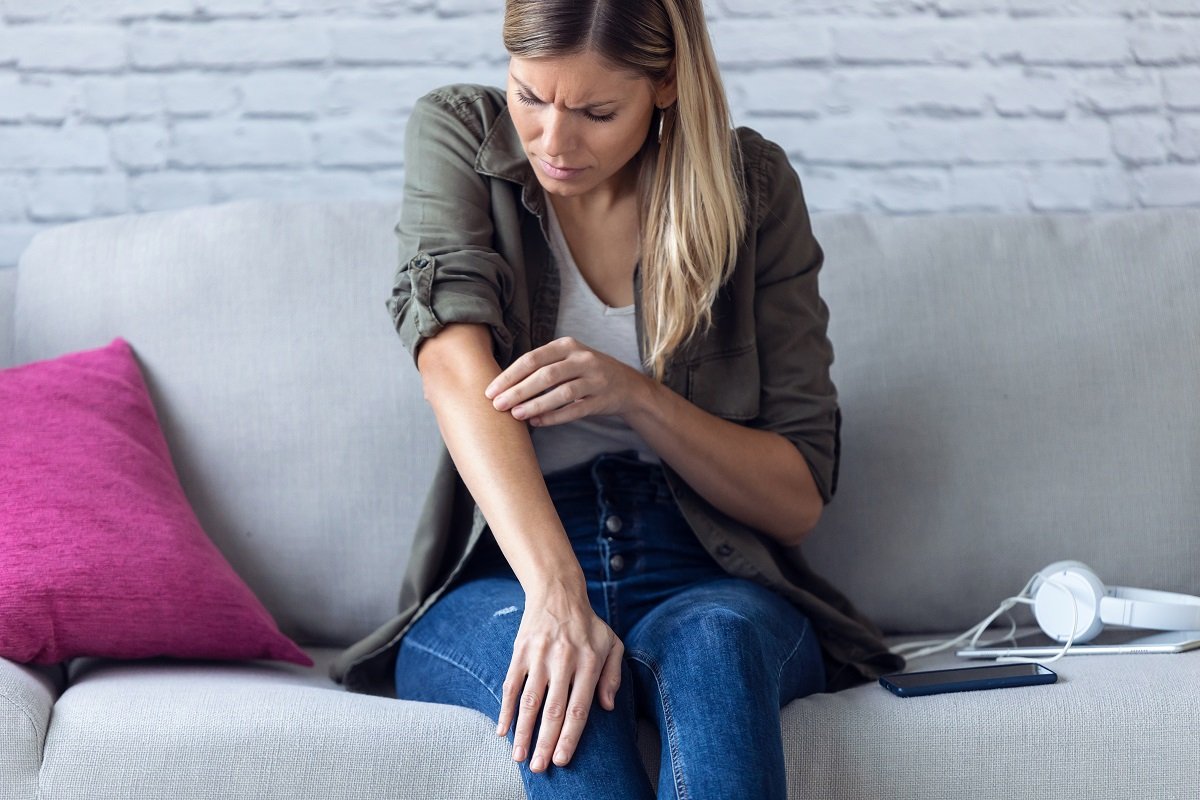Having a flare-up of eczema is not very uncommon. Lots of people suffer every day with those itchy nightmare spots on the skin. The more you want to forget about it and ignore it, the more it urges you to scratch it and make things worse.
Also known as atopic dermatitis, eczema can be described as red patches of anger and itch. However, like any problem, some solutions, or at least temporary solutions, won’t make the situation worse.
So, what are the best home remedies to treat your eczema, according to experts in the field?
What Are the Best Natural remedies for eczema?
We cannot single out one treatment and call it the best treatment for eczema. Various strategies and treatments prove to be helpful for some people, others prove to be helpful for others.
For example, treating eczema for babies might need you to follow a different strategy than the one you might use as an adult.
Here are some of the best natural treatments for eczema
Take Bleach Baths
Although it might sound strange to you, if you’re not already aware of the benefits of bleach baths, taking them is good for your eczema condition.
Bleach kills the bacteria on the surface of your skin that causes skin infections of eczema.
All you need to do is to add half a cup of regular-strength bleach (6%) to your bathwater.
As for the case of a baby, you might want to reduce the bleach concentration. You should also consult your doctor before going with this method.
Use Apple Cider Vinegar
Apple cider vinegar contains some antibacterial properties, which might be quite helpful for eczema.
Though there’s not much research to suggest it’s effective for eczema, it’s still a variable option.
If you’re not very comfortable with the idea of adding bleach to your bathwater, apple cider vinegar is the best alternative.
Use Coconut Oil
While coconut oil is popular for everything from cleaning teeth to skin and hair conditioning, only a few know that it’s also good for eczema.
Aside from the anti-bacterial properties that the oil has, it also works as a great moisturizer.
The best option you can go with is unadulterated coconut oil with no additives or synthetic products. You should buy raw coconut oil if you want good results.
Apply Colloidal oatmeal
Found in a variety of bath soaks and body lotions, colloidal oatmeal can help a huge deal with calming skin inflammation.
Colloidal oatmeal is soothing to the skin and can be very calmful when it comes to itchiness.
Use Vaseline
You should use it whenever the itchiness of eczema hits and you have nothing other than Vaseline at hand.
Vaseline has always been one of those products that you find in homes everywhere. So, it’s not hard to get your hands on it.
Vaseline should work as a great moisturizer for the skin area affected by eczema. Eczema tends to hit whenever the skin is too dry. So, having Vaseline close by should be a priority.
Apply ice or cold water
Cold has many positive effects on inflammation, which triggers the symptoms of eczema. When the skin gets too warm, inflammation might be stimulated, which in turn will agitate eczema.
Taking cold showers or putting a cool, wet cloth on the skin area with eczema should alleviate the symptoms.
Eczema remedies you should consider not using.
While many people allege such and such is good for eczema, some suggestions are not recommended. Since many products can trigger allergies, you should be careful what you use for your eczema.
Here are some of the Eczema remedies that you should probably consider not using because they might trigger allergies:
- Anti-itch ointments and sprays.
- Essential oils.
- Botanicals.
Safe home remedies for baby eczema
In the case of babies and little children, eczema can be quite frustrating. Both the baby and the parents suffer tremendously when eczema becomes too annoying.
Here are some strategies that you can use with your child who suffers from eczema:
Use distractions
When you notice your child scratching the itch, your first reaction might be to tell her or him to stop. That strategy doesn’t work most of the time because the child’s attention is still directed towards the stimulus, which is the annoying itch.
Instead of telling your child to stop scratching, you can be subtle about the situation and find a quick distraction.
Children are easily distracted when something they enjoy doing is presented to them. As a parent, you must know how to distract your child when you need to.
Protect skin from scratch wounds
Scratching itchy eczema can lead to the development of little infected wounds. To protect your child from these infections, you should keep their fingernails very short.
How to treat Infected eczema?
When eczema develops into an infection, the situation might be too serious for you to handle alone. That’s why you should delegate that responsibility to a healthcare professional.
The signs of infection due to severe eczema include:
- Having fever or chills.
- Experiencing pain or developing swelling.
- Having straw-colored/mustard color crust.
- Having white discharge and pus.
- Worsening of eczema, redness, and spreading.
If you notice these signs or at least one of them, you should consider consulting a healthcare professional immediately.
Bottom line
We hope this article on home remedies for eczema was of little help to you. If you need to know more about the most common skin problems, please consult our article on The Most Common Skin Problems.

